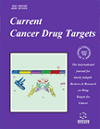
Full text loading...

Colorectal cancer (CRC) usually begins as adenomatous polyps in the colorectal or rectal epithelial cells. Currently, there are no reliable biomarkers for early CRC screening or prognostic prediction, leading to late-stage diagnoses when surgical options may no longer be viable. The disease is driven by mutations in oncogenes, tumor suppressor genes, and DNA repair genes, with rapid growth and metastasis contributing to treatment failure. Over the past two decades, research on non-coding RNAs (ncRNAs), particularly long ncRNAs (lncRNAs), has expanded significantly, revealing their critical roles in cancer biology. LncRNAs are involved in numerous biological processes such as cell proliferation, apoptosis, metabolism, and drug resistance, and they are often abnormally expressed in various cancers, including hepatocellular carcinoma, pancreatic cancer, and bladder cancer. In CRC, lncRNAs play a regulatory role by influencing cell cycle, proliferation, apoptosis, and epithelial-mesenchymal transition, and some have been shown to affect CRC cell proliferation, invasion, and resistance to cisplatin, highlighting their potential as therapeutic targets and biomarkers in cancer treatment. This review highlights current investigations on the functions and mechanisms of lncRNAs in cisplatin resistance in CRC. Such overview is anticipated to contribute to figuring out that lncRNAs can be applied as a promising target gene to develop drug resistance and remedial efficacy.

Article metrics loading...

Full text loading...
References
